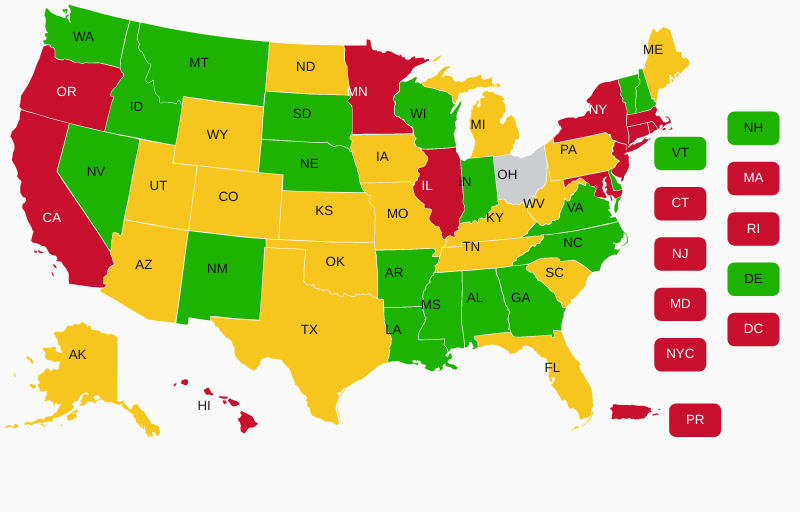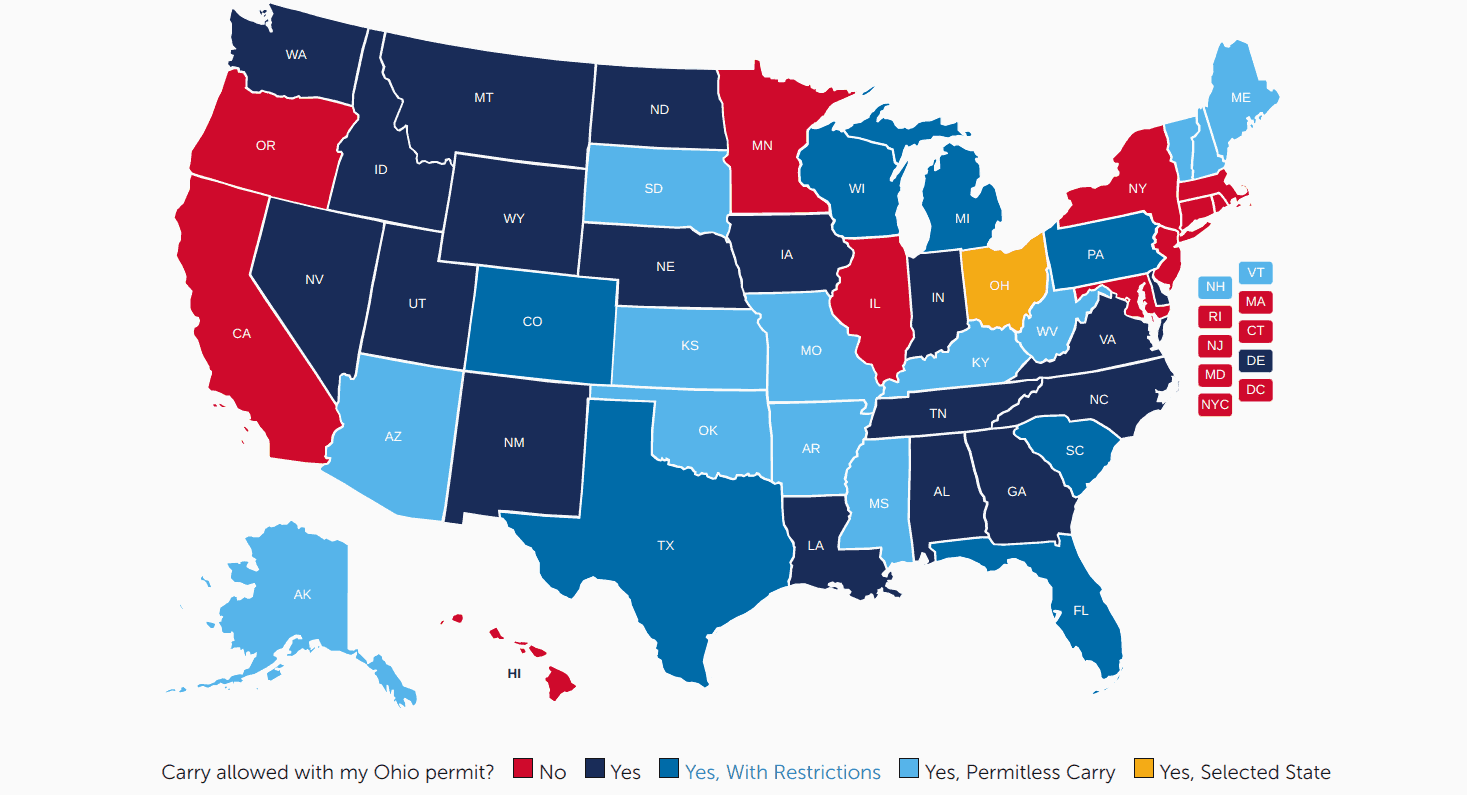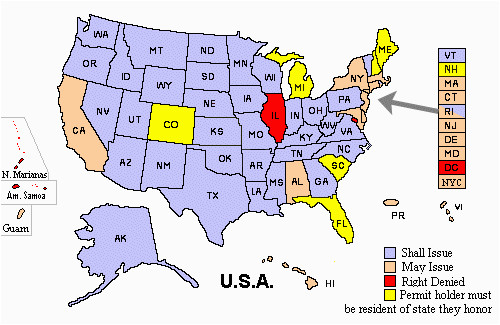Navigating Ohio’s Concealed Carry Landscape: A Comprehensive Guide
Related Articles: Navigating Ohio’s Concealed Carry Landscape: A Comprehensive Guide
Introduction
In this auspicious occasion, we are delighted to delve into the intriguing topic related to Navigating Ohio’s Concealed Carry Landscape: A Comprehensive Guide. Let’s weave interesting information and offer fresh perspectives to the readers.
Table of Content
Navigating Ohio’s Concealed Carry Landscape: A Comprehensive Guide

The right to bear arms is enshrined in the Second Amendment of the United States Constitution, and Ohio recognizes this right by permitting individuals to obtain a concealed carry license. Understanding the legal requirements and nuances of concealed carry in Ohio is crucial for responsible gun owners seeking to exercise their right to self-defense. This guide provides a comprehensive overview of Ohio’s concealed carry laws, including license requirements, training stipulations, and the legal framework governing the use of firearms for self-defense.
Understanding Ohio’s Concealed Carry Laws
Ohio’s concealed carry laws are governed by the Ohio Revised Code, specifically Chapter 2923, which outlines the requirements and regulations for carrying a concealed handgun. The state’s concealed carry legislation aims to strike a balance between safeguarding the right to bear arms and ensuring public safety.
Concealed Carry License Requirements
To legally carry a concealed handgun in Ohio, individuals must obtain a valid concealed carry license. The process involves meeting specific requirements, including:
- Age: Applicants must be at least 21 years old.
- Residency: Applicants must be legal residents of Ohio.
- Criminal History: Applicants must not have a felony conviction or be subject to a restraining order prohibiting them from owning firearms.
- Mental Health: Applicants must not have been adjudicated as mentally incompetent or committed to a mental health facility.
- Training: Applicants must complete a certified concealed carry training course.
Training Requirements
Ohio mandates that applicants for a concealed carry license complete a certified training course. These courses typically cover:
- Firearm Safety: Instruction on proper handling, storage, and safe operation of firearms.
- Ohio Law: Comprehensive review of Ohio’s concealed carry laws, including legal justifications for using a firearm in self-defense.
- Range Practice: Practical shooting exercises to demonstrate proficiency in handling and firing a firearm.
Application Process
To apply for a concealed carry license, applicants must submit an application to the Ohio Attorney General’s Office. The application requires:
- Personal Information: Name, address, date of birth, and other identifying details.
- Training Certification: Proof of completion of a certified concealed carry training course.
- Fingerprints: Applicants must undergo fingerprinting, which is typically conducted at a designated location.
- Photo: A recent passport-style photograph is required.
- Fee: A non-refundable application fee is payable to the Ohio Attorney General’s Office.
License Validity and Renewal
Upon approval, concealed carry licenses are valid for four years. License holders are responsible for renewing their licenses before they expire. The renewal process is similar to the initial application, requiring the submission of a renewal application and payment of a fee.
Carrying a Concealed Handgun
Once a concealed carry license is issued, individuals are legally permitted to carry a concealed handgun in Ohio. However, certain restrictions apply:
- Prohibited Locations: Concealed carry is prohibited in certain locations, including schools, courthouses, and government buildings.
- Notification: License holders are not required to notify law enforcement officers that they are carrying a concealed handgun.
- Duty to Inform: License holders are required to inform law enforcement officers if they are carrying a concealed handgun during a traffic stop.
Self-Defense and the Use of Force
Ohio law recognizes the right to self-defense, allowing individuals to use force to protect themselves or others from imminent harm. However, the use of deadly force is only justified in situations where the individual reasonably believes that their life or the life of another is in imminent danger.
Legal Considerations
Carrying a concealed handgun is a significant responsibility. Individuals must be aware of the legal ramifications of their actions and exercise caution when carrying a firearm. It is crucial to consult with legal counsel to fully understand the nuances of Ohio’s concealed carry laws and the legal implications of using a firearm in self-defense.
FAQs on Concealed Carry in Ohio
Q: Can I carry a concealed handgun if I have a permit to carry in another state?
A: No. Ohio does not recognize concealed carry permits issued by other states. To legally carry a concealed handgun in Ohio, you must obtain a valid Ohio concealed carry license.
Q: What happens if I lose my concealed carry license?
A: If you lose your concealed carry license, you must immediately report the loss to the Ohio Attorney General’s Office. Failure to do so could result in legal penalties.
Q: Can I carry a concealed handgun in my vehicle?
A: Yes, you can carry a concealed handgun in your vehicle if you have a valid Ohio concealed carry license. However, the firearm must be unloaded and stored in a secure container, such as a locked glove compartment or trunk.
Q: Can I carry a concealed handgun while intoxicated?
A: No. It is illegal to carry a concealed handgun while intoxicated or under the influence of drugs.
Q: What are the penalties for carrying a concealed handgun without a license?
A: Carrying a concealed handgun without a license is a misdemeanor offense in Ohio. Penalties can include fines and imprisonment.
Tips for Responsible Concealed Carry in Ohio
- Know the Law: Thoroughly familiarize yourself with Ohio’s concealed carry laws and regulations.
- Practice Regularly: Regularly practice safe handling and shooting techniques at a certified shooting range.
- Store Safely: Securely store your firearm when not in use, out of reach of children and unauthorized individuals.
- Be Aware of Your Surroundings: Be aware of your surroundings and avoid carrying a concealed handgun in situations where it may be unsafe or prohibited.
- Seek Legal Counsel: If you have any questions or concerns about concealed carry laws, consult with an experienced attorney.
Conclusion
Ohio’s concealed carry laws provide a framework for responsible gun ownership and self-defense. By understanding the requirements and legal implications of concealed carry, individuals can exercise their right to bear arms safely and responsibly. It is crucial to prioritize safety, adhere to the law, and seek professional guidance when necessary to ensure the responsible use of firearms in Ohio.






.jpg)

Closure
Thus, we hope this article has provided valuable insights into Navigating Ohio’s Concealed Carry Landscape: A Comprehensive Guide. We hope you find this article informative and beneficial. See you in our next article!
